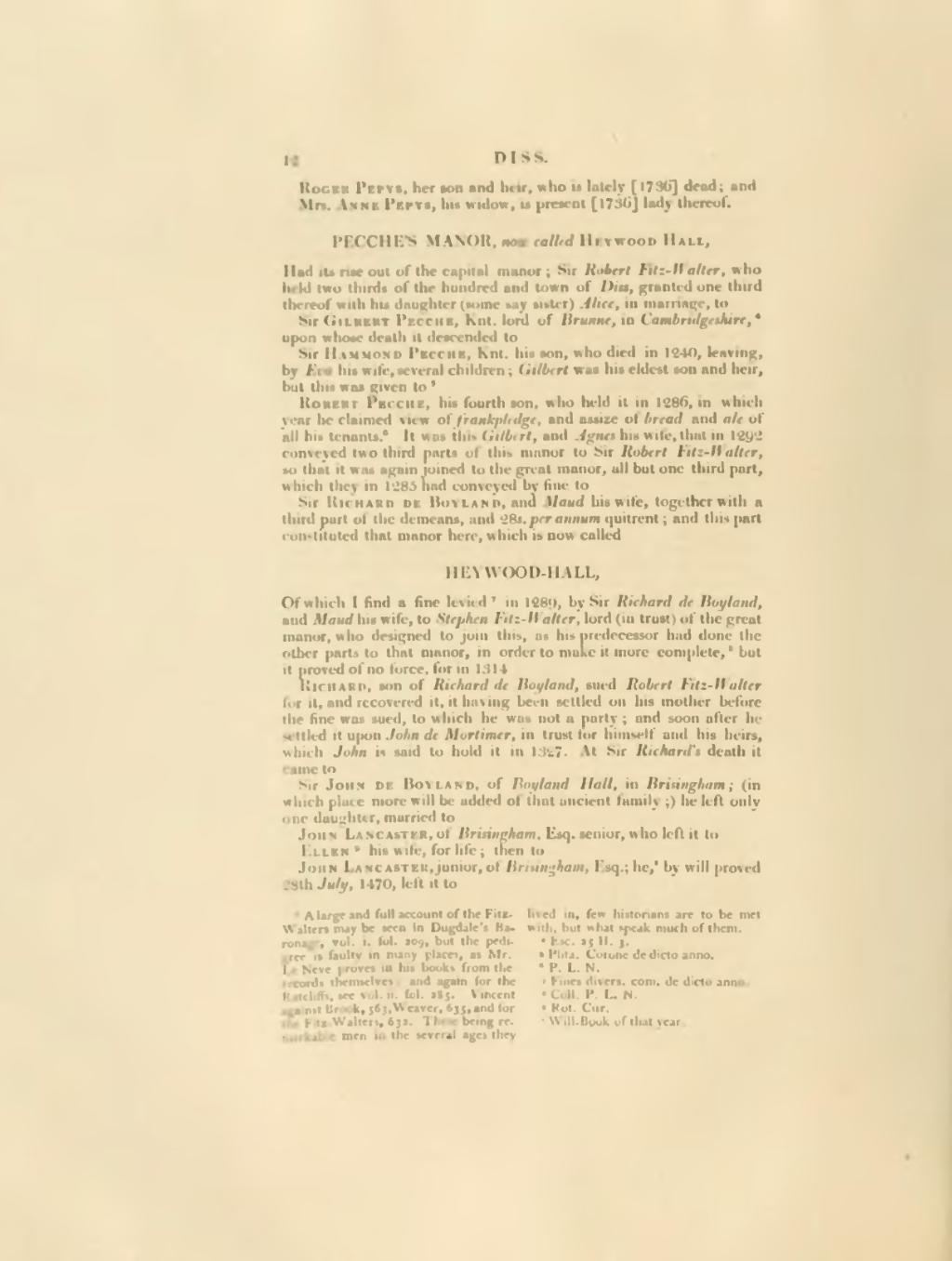her son and heir, who is lately [1736] dead; and Mrs. Anne Pepys, his widow, is present [1736] lady thereof.
Pecche's Manor, now called Heywood Hall
Had its rise out of the capital manor; Sir Robert Fitz-Walter, who held two thirds of the hundred and town of Diss, granted one third thereof with his daughter (some say sister) Alice, in marriage, to
Sir Gilbert Pecche, Knt. lord of Brunne, in Cambridgeshire, upon whose death it descended to
Sir Hammond Pecche, Knt. his son, who died in 1240, leaving, by Eva his wife, several children; Gilbert was his eldest son and heir, but this was given to
Robert Pecche, his fourth son, who held it in 1286, in which year he claimed view of frankpledge, and assize of bread and ale of all his tenants. It was this Gilbert, and Agnes his wife, that in 1292 conveyed two third parts of this manor to Sir Robert Fitz-Walter, so that it was again joined to the great manor, all but one third part, which they in 1285 had conveyed by fine to
Sir Richard de Boyland, and Maud his wife, together with a third part of the demeans, and 28s. per annum quitrent; and this part constituted that manor here, which is now called
Heywood-Hall
Of which I find a fine levied in 1289, by Sir Richard de Boyland, and Maud his wife, to Stephen Fitz-Walter, lord (in trust) of the great manor, who designed to join this, as his predecessor had done the other parts to that manor, in order to make it more complete, but it proved of no force, for in 1314
Richard, son of Richard de Boyland, sued Robert Fitz-Walter for it, and recovered it, it having been settled on his mother before the fine was sued, to which he was not a party; and soon after he settled it upon John de Mortimer, in trust for himself and his heirs, which John is said to hold it in 1327. At Sir Richard's death it came to
Sir John de Boyland, of Boyland Hall, in Brisingham; (in which place more will be added of that ancient family;) he left only one daughter, married to
John Lancaster, of Brisingham, Esq. senior, who left it to Ellen his wife, for life; then to
John Lancaster, junior, of Brisingham, Esq.; he, by will proved 28th July, 1470, left it to
Elizabeth
